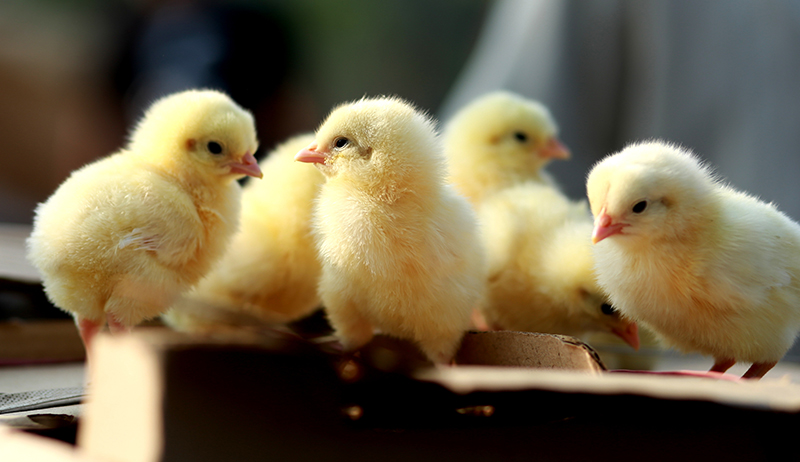When you purchase your first stock of day old kienyeji chicks, the expectation is that they are going to survive 100%. However, that is not always realizable. Even with best efforts at husbandry on your part, losses will always occur in your chicks. It could be due to diseases or accidents. What matters is the scale of the losses.

It is reasonable to have a mortality rate of 1% to 5%. This is regarded as the normal range. However, if you lose more 5% of your kienyeji chicks, then you need to start re-evaluating the management factors that you are using and make immediate interventions to reduce losses.
There are certain causative factors which if not checked, are likely to wipe out your entire kienyeji chicken flock, leading to significant losses. Causes of mortality in young chicks are often due to the following:-
Genetic Factors
Sometimes, your chicks are dying in large numbers due to certain genetic factors such as the congenital tremors and congenital loco. These will cause death in chicks within the first week after they are hatched. The best control measure is to buy your day old chicks from a reputable source who take measures to select against such genes.
Management Factors
This is probably the leading cause of mortality in young chicks. Unfortunately, many farmers venture into poultry farming without enough knowledge and experience into proper poultry husbandry so they end up making mistakes that lead to high mortality.
Some of the most common management mistakes that might cause high mortality in your kienyeji chicks include the following:-
- High brooding temperatures: In our Kienyeji Chicken Farming Manual, we have offered a detailed overview of the right temperatures that you should maintain for your chicks as well as how you can gradually step down the temperatures with time as the chicks grow older. High temperatures are likely to cause dehydration. Since the border of the young chicks consist of 70% water, high temperatures is likely to lead to loss of water which can lead to dehydration and subsequently, death.
- Pasting: If the brooder house has high temperatures, pasting is likely to occur in your kienyeji chicks. Pasting refers to the sticking of the faeces around the vents which causes blockage and subsequently, the untimely death of your chicks.
- Low brooding temperatures: On the other hand, low brooding temperatures is likely to cause chilling and pneumonia which can kill your chicks in very large numbers. Low brooding temperatures will also cause the chicks to huddle together around corners so as to as feel warm. The overcrowding will result in smothering and often, death.
As a poultry farmer, it is important to take the appropriate measures ion temperature control so as to minimize the effects of low temperatures. Make sure the room is optimally warm to accommodate the young birds. Provide adequate heating and observe the behavior of the birds when there is heating in order to establish whether you have provided the right amount of heat.
Make sure that you maintain the right amount of temperatures throughout the birds’ brooding period. Check out our improved kienyeji chicken farming manual for guidance on the right amount of temperatures to maintain in your brooder.
Feeding related factor
Provide adequate and clean food and ensure that the feeding troughs are evenly distributed in the poultry house. One of the most common causes of high mortality in young chicks is feed poisoning either through toxins or fungal contamination. A common source of toxins is tannin that is found in saw dust used in the poultry house.
Other risks include too much salt in the drinking water as well as toxic gases such as carbon monoxide, ammonia and carbon dioxide. The gas problem can be managed through proper ventilation of the brooder area.
Additionally, ensure that you have provided adequate and clean drinking water. As we have variously stated, your chickens will never forgive you for failure to provide adequate clean drinking water. Dehydration will significantly affect your poultry performance.
Diseases
Finally, there is the risk of diseases. Make sure that you purchase your day old chicks from a reputable supplier who will have vaccinated the chicks before distributing them to the customer. Chicks have low immunity levels so it is imperative that they are properly vaccinated with the right vaccines as soon as they hatch. High levels of hygiene should also be maintained to prevent the onset of any opportunistic infections.